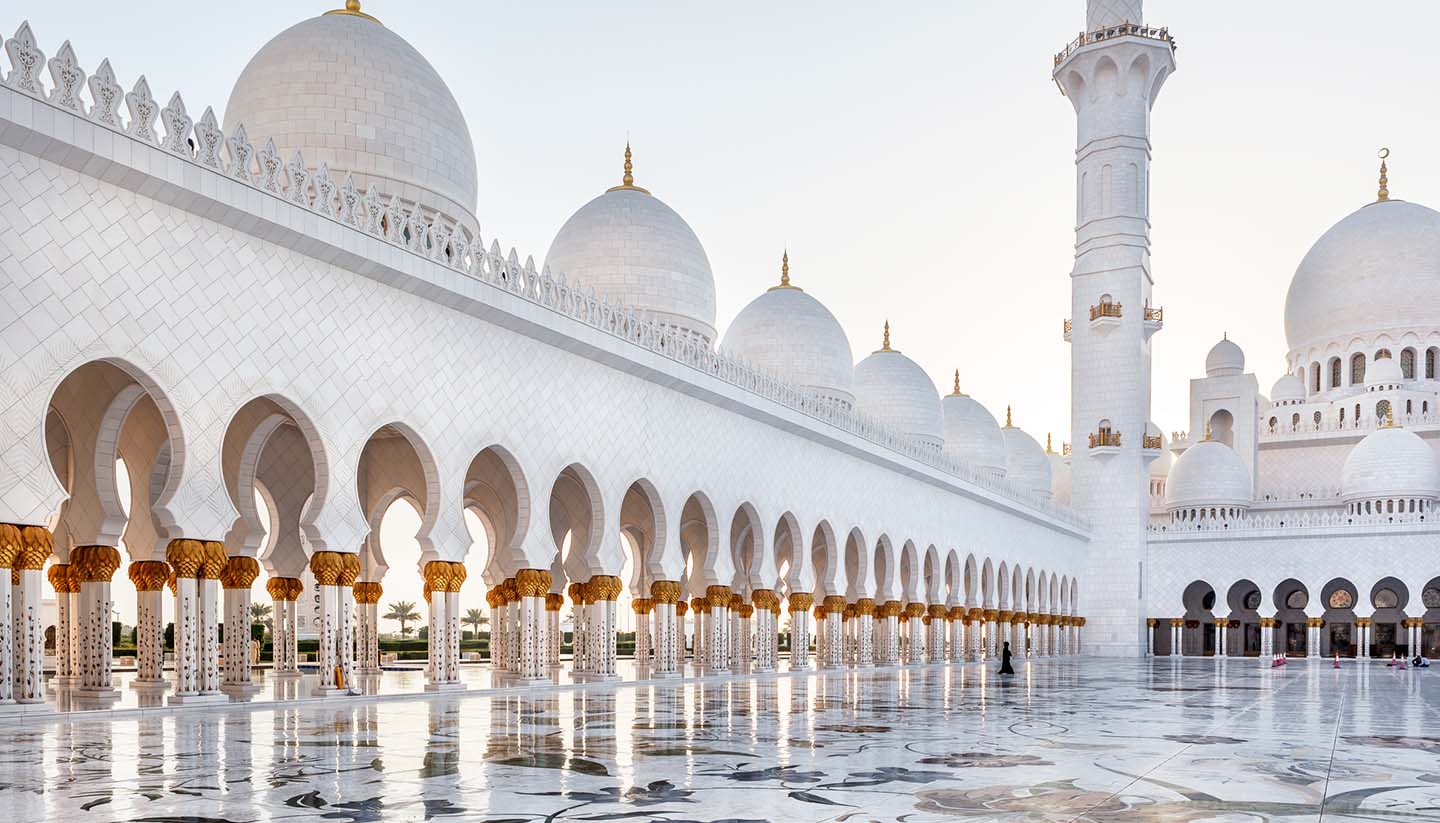United Arab Emirates History, Language and Culture
History of United Arab Emirates
It can be fascinating to examine the UAE’s foray into the modern world when only decades ago, the country was occupied by desert roaming, nomadic Bedouin tribes, who enjoyed simple existences in fishing villages and the peaceful, expansive desert.
The Bedouin people traded with merchants from Iran, China and India before the arrival of Europeans in the 1400s. From the late 1400s, the Portuguese had control over much of the coastal emirates. But in an 1892 treaty, the sheiks that had control over what we now know as the UAE gave up much of their foreign relations power to the British government.
Trading of the UAE’s "black gold" (crude oil) – the source of the country’s infallible wealth - commenced in 1962, after years of hardship that followed the downfall of the pearling industry in the 1930s. It was soon obvious that the British government could no longer administer and protect the emirates, so in March 1971 the treaties ended and the nine Persian Gulf sheikdoms began negotiations to form a union of Arab emirates. On 2 December 1971, Abu Dhabi and Dubai joined forces with four other emirates to form the United Arab Emirates. Sheikh Zayed bin Sultan Al Nahyan, the former ruler of Abu Dhabi, became the UAE’s first president. After he passed away in 2004, his eldest son, Sheikh Khalifa bin Zayed Al Nahyan, took over and he has been president ever since.
● The Dubai police force use Lamborghinis and Ferraris so that they can catch speeders.
● Dubai has no address system and no postal codes. For a package to arrive at the desired location, the sender would have to leave instructions about the destination of the package, or send it to a PO Box.
● The world’s fastest roller coaster is housed at Ferrari World, Abu Dhabi’s indoor theme park.
United Arab Emirates Culture
Religion in United Arab Emirates
The vast majority of Emirati nationals are muslims, approximately 90% Sunni and 10% Shia. The UAE follows a policy of tolerating existence of other religions, through the Ministry of Tolerance. Based on the latest Ministry of Economy census in 2005, 76% of the total population is Muslim, 9% Christian, and 15% are recorded as other (mainly Hindu).
Social Conventions in United Arab Emirates
The UAE is an Islamic country and women may feel more comfortable when dressed modestly. Even though foreign women can dress as they please, covering the shoulders and knees is a requirement in public areas like shopping centres and also during periods of religious significance. Men are also expected to dress with respect. Homosexuality and adultery are both illegal and while non-married couples aren’t lawfully permitted to stay together in the same hotel room, it is common practice and rarely enforced.
Alcohol is tolerated, with non-Muslims allowed to drink alcohol in the cities’ plentiful hotel bars and restaurants (except for Sharjah). Tourists are permitted to bring four litres of alcohol into the country, though under 20s are not allowed to drink alcohol or buy cigarettes. It is illegal for everyone to eat, drink or smoke in public during daylight hours of the holy month of Ramadan, and on the day or eve of days of national importance, alcohol isn’t sold and bars are shut. As in all Muslim countries, it’s best to keep displays of affection private – kissing or embracing in public is not only considered disrespectful, it could lead to police caution or even arrest. Holding hands is generally fine, but swearing, rude gestures and drink driving are all punishable by imprisonment. Drugs are a strict no-no and could land you in serious trouble. It’s worth checking what medicine and painkillers you bring into the country, as even some common pain medications like codeine are prohibited.
Language in United Arab Emirates
Arabic is the official language. English is widely spoken and used as a second language in commerce.
Phrases
Hi = Salam سلام
Thanks = Shokran شكرا
Welcome = Marhaba مرحبا
How are you? = Kaifa haloka/ haloki (women) كيف حالك؟
Good morning = sabah ala-kheir صباح الخير
Good afternoon = masa' al-kheir مساء الخير.
I'm lost = Ada'tu tareeqi أضعت طريقي! أضعت طريقي!
How much is this = Kam howa thamanoh? كم هو ثمنه؟
Excuse me = Men fathlek/ fathleki (female) فضلك
Sorry = Aasef! !أسف
No Problem = La moshkelah مشكلة

